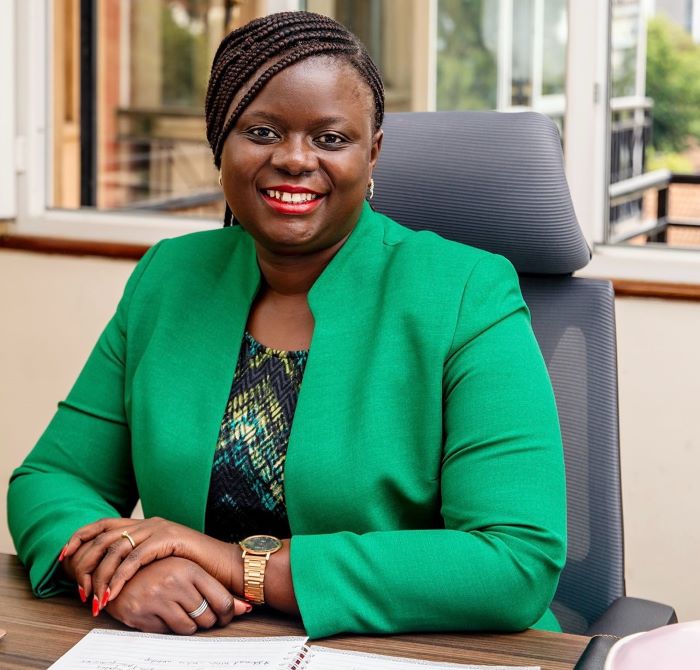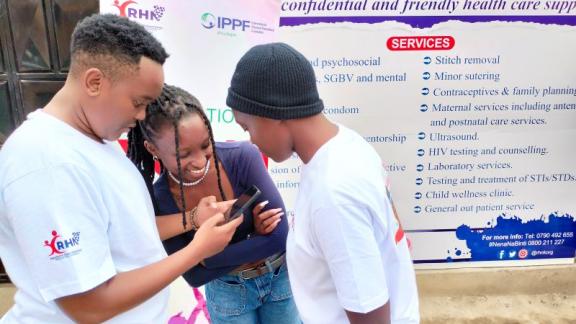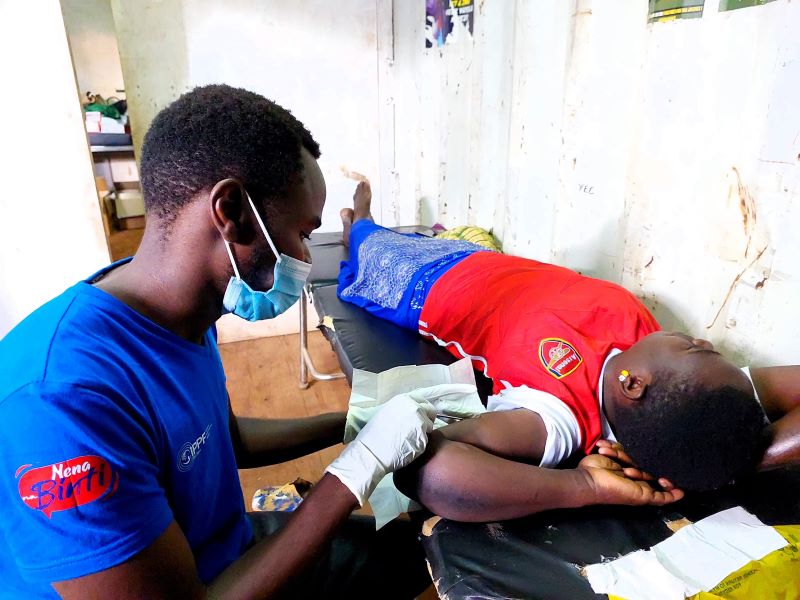In July this year, Kenya joined the global community in celebrating the annual World Population Day in an event held in the capital city of Nairobi, and hosted by The National Council for Population and Development (NCPD). The focus of the event was on harnessing data to drive evidence-based policymaking, particularly in addressing the challenges faced by adolescents and young people.
During the event, NCPD –a State corporation responsible for the coordination and implementation of population and development activities in Kenya, recognized the contribution of key stakeholders and partners in the execution of its mandate, one of them being IPPF’s Member Association in the country –Reproductive Health Network Kenya (RHNK).
In this interview with Ms. Nelly Munyasia, RHNK’s Executive Director, we learn more about the organization’s partnership with the Kenyan government on population programmes.

Tell us more about RHNK's partnership with the Kenyan government on population programmes.
RHNK, with its network of over 600 healthcare providers in 44 counties in Kenya (out of 47), complements the government’s efforts towards achieving the ICPD25 and FP2030 commitments by advocating for a rights-based approach to sexual reproductive health and rights (SRHR), thus ensuring universal access to services.
As a private sector actor with a mission to improve access to quality and comprehensive sexual reproductive health (SRH) information and services through strategic partnerships, and cognizant of the challenges posed by rapid population growth and a youthful demographic, RHNK works closely with both the Ministry of Health (MoH) through the Division of Reproductive and Maternal Health (DRMH), and the National Council for Population and Development (NCPD) to achieve its mandate.
RHNK’s role in Kenya’s SRHR national advocacy and policy initiatives
We are members of DRMH Technical Working Group, supporting the development and implementation of progressive, comprehensive SRHR laws, policies and guidelines. In this capacity, RHNK supports policy development, advocacy initiatives, capacity building, service provision and data and evidence generation.
Notably, together with other civil society organizations and stakeholders, RHNK supported the DRMH in the development of the Kenya Reproductive, Maternal, Newborn, Child, and Adolescent Health (RMNCAH) Policy (2017-2030), the Clinical Handbook on the Prevention and Management of the BIG 5 Direct Causes of Maternal Morbidity and Mortality in Kenya (Big 5 Clinical Handbook), the National Guideline on Mifepristone and Misoprostol Combination (combi-pack), the National Guidelines for Self-Care in Reproductive Health, and the Kenya DMPA-SC Costed Implementation Plan (2024-2030), among others.

RHNK’s partnership with the NCPD
As an organization that has adolescents and youth at its core, RHNK’s recent participation in the National Adolescent, Sexual & Reproductive Health Technical Working Group of the MoH, we contributed significantly to the development of the national Adolescent and Youth Sexual and Reproductive Health (AYSRH) Annual Work Plan for 2024/2025. Here, RHNK shared best practices and evidence-based interventions aimed at reducing teenage pregnancy and improving SRHR outcomes for adolescents and youth.
RHNK is also a member of NCPD’s Family Planning Advocacy Technical Working Group, and recently supported the development of the Family Planning Advocacy Tool Kit (2023). Additionally, RHNK alongside other partners, supported the development and launch of the Kenya National Population Policy for Sustainable Development (2024).
In July 2024, RHNK was incorporated as a member of the Multi-Stakeholder Technical Planning Committee, a committee that is working to position Kenya to inform and influence the future agenda on population at the UN Summit of the Future to be held in New York in September 2024. Further, RHNK is a constant contributor to the civil society organizations (CSOs) ICPD25 commitment reporting and tracking –a dashboard monitoring the implementation of ICPD commitments in Kenya.
How does RHNK's data on adolescents and youth inform the organization's programmes?
Layered on RHNK’s provider network is a youth-centric approach to SRHR programming. Subsequently, adolescent and youth engagement is a stand-alone strategic pillar which provides a framework for youth programming in all our work.
The evidence and data we generate within RHNK on adolescent and youth is utilized to make person-centered programmatic interventions that address the unique challenges faced by this vulnerable population. For example, during the Covid-19 period, RHNK identified the alarming rise in cases of sexual and gender-based violence (SGBV), unsafe abortions, teenage pregnancy and sexually transmitted infection among adolescents and young people, especially women and girls.
The data highlighted that school closures and lockdown measures exacerbated the vulnerability of young people to SGBV, with many cases going unreported due to limited access to SRHR services. In response, RHNK intensified its advocacy efforts by engaging policymakers to prioritize adolescent SRH in the national COVID-19 response.

During the pandemic, RHNK launched the Nena Na Binti hotline, which has now grown to a call center offering telemedicine services including 24/7 support for survivors of SGBV, counselling, pro-bono legal assistance and referrals to health care providers. The hotline not only provided immediate support to affected adolescents and young people, but also led to policy shifts that led to prioritization of AYSRH during the pandemic.
Is the data available on Kenya’s adolescents and young people enough?
Indeed, Kenya has made significant progress in collecting and analyzing data on adolescents and youth. However, there are still gaps in coverage, particularly in areas such as self-care, mental health, disability, and experiences of marginalized youth including but not limited to young people in the LGBTQ community.
Data disaggregation by age, gender, and other socio-economic factors is often insufficient, limiting the ability to fully understand the diverse needs of different groups of adolescents and young people in all their diversities. In addition, going by the track20 FP2030 report for 2024, research and data collection across the country focuses more on commodity and service uptake, with minimal interest in other areas, such as social behavior change. Data collection is also affected by some of the existing restrictive policies and legal frameworks that relate to SRH services.
The gaps in data collection that reflect the emerging health challenges faced by adolescents and young people in the country hinder evidence-based decision making by stakeholders. These gaps are an obstacle to the attainment of political prioritization of SRHR for adolescents and young people in Kenya, leading to lack of consensus on a cohesive public positioning of the problems faced by this population. This is further compounded by the general perception by politicians that some of the special groups (for example, adolescents) lack political power, which makes politicians reluctant to act on the existing data on the severity of the problem.
How is RHNK embracing digital innovations to ensure that more data on adolescents and youth is effectively captured, analysed, disseminated and utilized?
RHNK has integrated a digital data collection tool into its organizational electronic resource planning software to gather information from adolescents and youth.
Additionally, mobile-based surveys and digital questionnaires through apps such as survey monkey are utilized during in-reaches and outreaches, clinic visits and school-based programs to collect qualitative feedback to evaluate quality of services and our impact on social behavior change communication.
Further, regular virtual data review meetings within the youth committee inform our programming, while regular social media engagements and webinars are used to disseminate evidence and best practices.
Also read: RHNK -How partnership increased access to SRHR services during Nairobi’s flooding crisis
Follow IPPF Africa Region on Facebook, Twitter, Instagram and You Tube.
when
country
Kenya
region
Africa
Related Member Association
Reproductive Health Network Kenya











